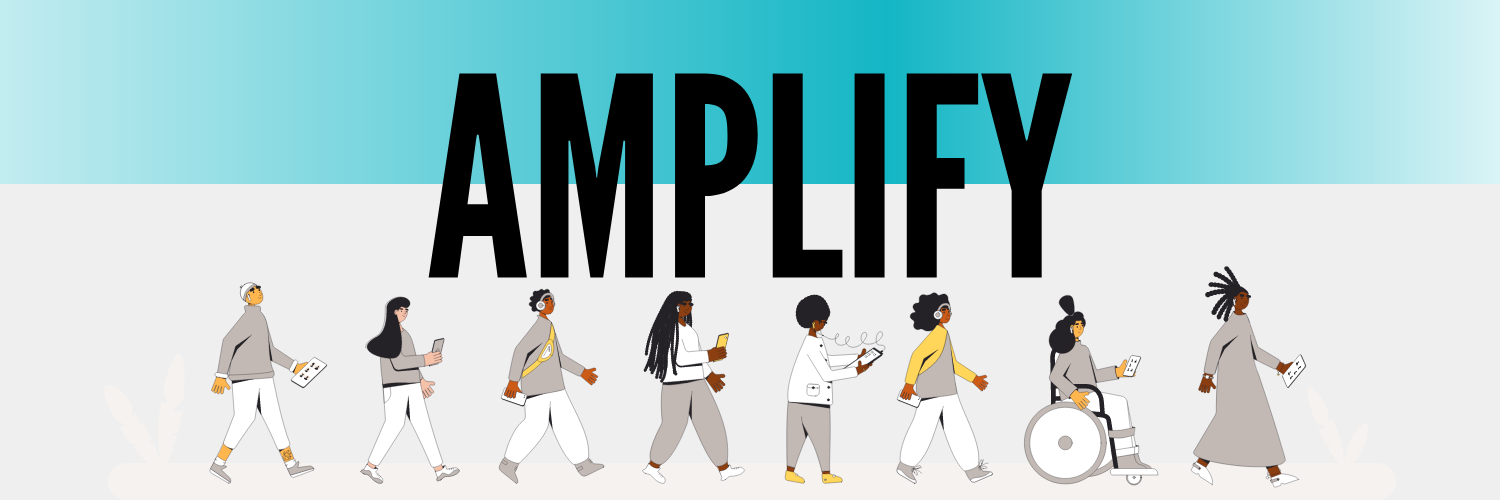ACT | The App Association recognizes the gap in representation in the app economy, and we want to change that. Our Amplify series lifts the voices of those in the tech community who are working to close those gaps in representation. We’re highlighting the problem solvers, elevating those who are driving change in their field and amplifying the efforts and voices of all people across all communities.
This Amplify segment highlights Betsy Furler: founder & CEO at For All Abilities and host of the For All Abilities – The Podcast, board member and advisor at the Technology Safety Council, author, thought leader, media consultant, and App Association member! Recently, we sat down with Betsy to learn more about her efforts in the accessibility space and how she works to amplify the needs of others through purposeful, strength-based leadership and innovation.
Q: Betsy – It is so exciting to see everything you have going on. I’m thrilled we were able to find time to chat! We’ll get to all that good stuff in a second, but let’s talk about you first. Who is Betsy Furler?
A: It is a pleasure to be here! I am the CEO/founder of For All Abilities (4AA). At For All Abilities, we use data to help employers amplify the strengths of their employees while supporting their weaknesses. We also provide ADA/Disability 101 training and EEOC (Equal Employment Opportunity Commission) violation trainings for organizations. I am a speech pathologist by training and got into this line of work while doing workplace disability consulting.
At AppCon one year, my fellow App Association members encouraged me to solve workplace disability and accommodations issues by using machine learning. I am passionate about people with disabilities and differences being included and valued in the workplace. There is a huge portion of the population that thinks, works, and learns differently than that imaginary box called the “norm.” Companies are missing out by not utilizing those employees to their full potential or reaching all of their customers.
Q: Mentorship is something you’re extremely passionate about, and, I would say, is a huge part of who you are as a person and as a professional. Can you talk a little bit about your mentors?
A: Mentorship is hugely important to me. I have been a mentor and mentee so many times in my lifetime and have gotten tremendous value out of both roles. Some of my fellow App Association members have graciously mentored me over the years. Sandra Gualtieri was one of the best. Sandra taught me how to be a fierce woman founder and CEO while retaining my femininity. She was a master at that! We lost her to pancreatic cancer in 2020 but her sage advice continues to carry me through many business situations.
As noted above, I also was encouraged by many of my fellow App Association member mentors to pivot my consulting into an AI-driven software solution. They still are always available to answer questions (or talk me off a ledge) at any time. I also love mentoring younger people or people new to fields I am involved in. I love seeing their progress!
Q: We just had Autism Awareness Month in April, so what better time to talk about the kind of work you’re up to at For All Abilities?! Give our readers the 411 on people and clients you work to empower and serve – how do you do what you do?
A: At For All Abilities, our mission and passion is to help every employee work to their full potential. This helps the employees, but it also helps the bottom line of their employers. Originally, 4AA was developed as a self-assessment of strengths, needs, and preferences in the workplace for people with neurodiversity like autism spectrum disorders, ADHD, dyslexia, and learning differences. As we developed the product, we realized that it works for the entire workforce. Regardless of a diagnosis, we all think, work, and learn differently. If employers can harness their employees’ strengths and minimize their weaknesses, everyone wins. Our ideal customer is an organization that highly values their workforce and wants their employees to be productive and satisfied at work. We also provide trainings for companies that have received an EEOC violation due to infractions against the Americans with Disabilities Act and for companies that want to avoid ADA violations.
Many tech companies benefit from hiring autistic employees. While everyone with a diagnosis of autism is different, people with autism often have brains that are ideally made for coding/development/numbers. Tech companies need employees. We help them retain these valuable employees through supports and accommodation recommendations. Employees do not have to disclose a diagnosis or disability, but their employer can still provide the support they need to be productive, efficient, and work well with their team.
Q: Considering the populations you work with, I imagine that you have a lot of opinions on the way society at large speaks to and treats folks who have autism or are neurodivergent. What is something you’d like to share that can lead to a more equitable community for everyone?
A: My dream is that someday we look at all people as different and put value on strengths rather than judging or defining people by the false perception of what is “normal.” If we all recognized our own differences and unique strengths, we would be better positioned to understand the differences and strengths of others.
Q: What do you want to leave readers with?
A: I would love to challenge all of the readers to think about their unique strengths and their differences. I also challenge them to think about their co-workers or employees through that lens – looking at their differences and the value those differences bring to the team.
